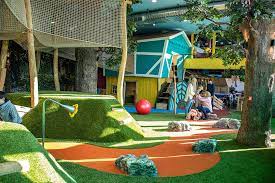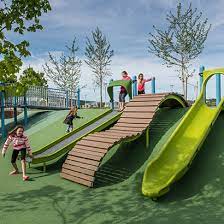
Exploring the Wonders of Toddlerhood: A Journey of Discovery
The Wonderful World of Toddlers
Toddlers, those delightful little beings who are just beginning to explore the world around them, are a source of endless wonder and joy. This stage of development, typically ranging from ages one to three, is filled with milestones and discoveries that shape their early years.
One of the most fascinating aspects of toddlers is their boundless curiosity. Everything is new and exciting to them, from the simplest objects to the most complex concepts. Their inquisitive nature drives them to touch, taste, smell, and explore everything in their path.
As toddlers navigate this new world, they are also developing crucial skills that will serve as the foundation for future learning. From learning to walk and talk to mastering basic problem-solving abilities, each day brings new challenges and triumphs.
Despite their small size, toddlers possess an incredible amount of energy and enthusiasm. They approach each day with a sense of wonder and adventure that is truly infectious. Whether they are playing with toys, exploring nature, or engaging in creative activities, toddlers have a knack for finding joy in the simplest things.
Parenting a toddler can be both rewarding and challenging. It requires patience, understanding, and a willingness to see the world through their eyes. By providing a safe environment for exploration and encouraging their natural curiosity, parents can help toddlers thrive during this crucial stage of development.
In conclusion, toddlers are remarkable little beings who bring laughter, love, and excitement into our lives. Their unique perspective on the world reminds us to embrace curiosity, celebrate small victories, and find joy in everyday moments.
Top Tips for Toddler Care: Encouraging Vegetable Intake, Mastering Potty Training, Ensuring Proper Sleep, and More
- How can I encourage my toddler to eat more vegetables?
- What are some effective potty training tips for toddlers?
- How much sleep does a toddler need each day?
- What are some fun and educational activities for toddlers?
- How can I help my toddler develop language skills?
- What are the best strategies for dealing with toddler tantrums?
- When should I start thinking about enrolling my toddler in nursery or preschool?
- What are the signs that my toddler is ready to transition from a cot to a bed?
- How can I promote good behaviour and discipline in my toddler?
How can I encourage my toddler to eat more vegetables?
Encouraging toddlers to eat more vegetables can be a common challenge for many parents. One effective approach is to make mealtimes fun and engaging by involving your toddler in the preparation process. Let them help choose the vegetables at the store or assist in washing and chopping them at home. Additionally, offering a variety of colourful and tasty vegetables in creative ways, such as cutting them into fun shapes or mixing them into favourite dishes, can pique their interest. Setting a positive example by eating vegetables yourself and praising your toddler’s efforts can also help create a positive association with healthy eating habits. Remember, patience and persistence are key when introducing new foods to toddlers, so keep offering vegetables regularly and allow them time to explore and develop their preferences.
What are some effective potty training tips for toddlers?
Potty training can be a significant milestone in a toddler’s development, and many parents seek effective tips to make the process smoother. One key tip is to introduce the concept gradually and patiently, allowing the child to become familiar with the potty and its purpose. Consistency is essential, so establishing a routine for potty breaks can help reinforce good habits. Positive reinforcement, such as praise or small rewards, can also motivate toddlers to use the potty independently. It’s important to be understanding and supportive throughout this learning phase, as accidents are a natural part of the process. By creating a positive and encouraging environment, parents can help their toddlers navigate this transition with confidence and success.
How much sleep does a toddler need each day?
Toddlers require a significant amount of sleep to support their growth and development. On average, toddlers aged between 1 to 3 years old need around 11 to 14 hours of sleep per day. This includes both nighttime sleep and daytime naps. Adequate rest is crucial for toddlers as it helps them recharge, consolidate learning, and support their overall well-being. Establishing a consistent bedtime routine and creating a comfortable sleep environment can help ensure that toddlers get the rest they need to thrive.
What are some fun and educational activities for toddlers?
When it comes to fun and educational activities for toddlers, the options are endless! Engaging toddlers in activities that combine play with learning can help stimulate their developing minds and foster important skills. Simple activities like sensory play with different textures, colours, and shapes can enhance their cognitive abilities. Reading colourful picture books together can promote language development and spark their imagination. Outdoor activities such as nature walks or playground adventures not only encourage physical exercise but also provide opportunities for sensory exploration. Arts and crafts projects involving painting, drawing, or crafting with safe materials can boost creativity and fine motor skills. Ultimately, the key is to make learning enjoyable and interactive for toddlers, setting a strong foundation for their future growth and development.
How can I help my toddler develop language skills?
Encouraging language development in toddlers is a key aspect of their early learning journey. To help your toddler develop language skills, it’s important to engage in regular conversations with them, using simple words and sentences to encourage communication. Reading books together, singing songs, and narrating daily activities can also stimulate their language abilities. Providing a rich language environment by introducing new words and concepts will expand their vocabulary and enhance their communication skills. Additionally, actively listening to your toddler, responding to their attempts at speech, and praising their efforts will boost their confidence and motivation to communicate effectively. Remember, patience and consistency are key when supporting your toddler’s language development journey.
What are the best strategies for dealing with toddler tantrums?
Dealing with toddler tantrums can be a challenging aspect of parenting, but there are effective strategies that can help navigate these moments with patience and understanding. One key approach is to stay calm and composed, providing a sense of stability for the child during their emotional outburst. Offering comfort and reassurance, while also setting clear boundaries, can help toddlers feel secure and supported. Distraction techniques, such as redirecting their attention to a different activity or object, can sometimes defuse the situation. It’s also important to acknowledge and validate their feelings, helping them learn to express emotions in a healthy way. Consistency in discipline and positive reinforcement of good behaviour can contribute to reducing tantrums over time. Remember, each child is unique, so it may take some trial and error to find the best strategies that work for your toddler.
When should I start thinking about enrolling my toddler in nursery or preschool?
Deciding when to enrol a toddler in nursery or preschool is a common concern for many parents. While there is no one-size-fits-all answer, experts generally recommend considering factors such as the child’s age, developmental readiness, social skills, and family circumstances. Some toddlers may benefit from the social interaction and structured learning environment that nursery or preschool provides, while others may thrive in a more relaxed setting at home. Ultimately, the decision should be based on what is best for the child’s overall development and well-being, taking into account their individual needs and preferences. Parents are encouraged to explore different options, visit potential nurseries or preschools, and seek advice from educators and healthcare professionals to make an informed choice that suits their family dynamic.
What are the signs that my toddler is ready to transition from a cot to a bed?
When considering transitioning your toddler from a cot to a bed, it’s important to look out for certain signs that indicate they may be ready for this change. Some common signs include your toddler attempting to climb out of the cot, showing interest in adult beds, expressing discomfort or resistance when placed in the cot, or simply outgrowing the cot in size. Additionally, if your toddler is able to understand and follow simple instructions, shows improved motor skills and coordination, and demonstrates a sense of independence, these can also be indicators that they are ready for the transition to a bed. It’s essential to approach this change with patience and reassurance, ensuring that your toddler feels secure and supported throughout the process.
How can I promote good behaviour and discipline in my toddler?
Promoting good behaviour and instilling discipline in toddlers is a common concern for many parents. One effective approach is to set clear and consistent boundaries, ensuring that your child understands what is expected of them. Positive reinforcement, such as praising good behaviour and offering rewards for following rules, can also encourage positive habits. It’s important to model the behaviour you want to see in your child and remain patient and calm when addressing misbehaviour. By providing a nurturing and structured environment, along with open communication and guidance, parents can help their toddlers learn valuable lessons in self-control and respect.


